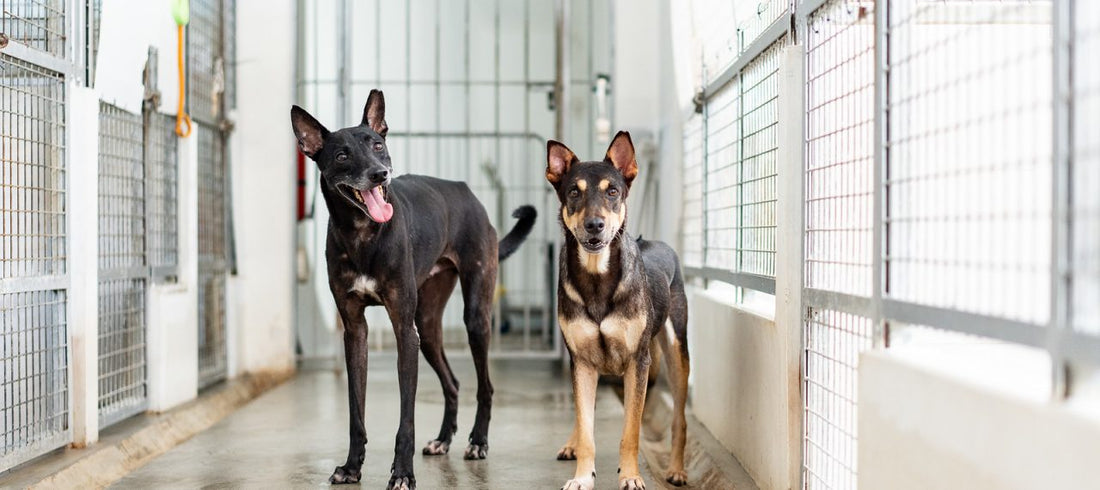
Rehoming Dogs After Adoption: A Guide for Pet Owners
Share
Adopting a dog is a significant commitment, filled with joyous moments and occasional challenges. However, sometimes circumstances require rehoming dogs after adoption. This decision can be emotionally taxing, especially for health-conscious pet owners who prioritize their pet's well-being. Understanding the reasons and considering the best practices can ease the transition for both the dog and the owner.

Why Rehome a Dog After Adoption?
Several factors can lead to the decision to rehome a dog. Changes in personal circumstances, such as unexpected moves, financial constraints, or health issues, can make it difficult to continue caring for a dog. Sometimes, despite best efforts, a dog may not adapt well to a new environment, leading to stress for both the pet and its owner.
Another common reason is behavioral issues that were not apparent during the initial adoption process. For instance, a dog may exhibit anxiety, aggression, or excessive barking, making it challenging to maintain a harmonious household. Understanding these aspects is crucial in making an informed decision about rehoming.
Steps to Rehome Your Dog Responsibly
Evaluate the Situation
Before making the decision to rehome, evaluate the situation thoroughly. Consider consulting with a veterinarian or a professional dog trainer to assess whether the issues can be resolved with training or medical intervention. Resources like this adopting dogs with behavioral issues guide can provide insights and solutions.
Find a Suitable New Home
When rehoming your dog, finding a suitable new home is paramount. Reach out to local animal shelters, rescue organizations, or use online platforms dedicated to pet adoption. Ensure potential adopters are aware of your dogs needs and any behavioral or health issues. The ASPCA offers resources and support for finding a loving new home for your pet.
Prepare Your Dog for Transition
To minimize stress during the transition, prepare your dog for rehoming. Maintain a consistent routine and gradually introduce them to new people and environments. Providing a familiar toy or blanket can offer comfort during the adjustment period.
Supporting Your Dogs Health During Rehoming
Health-conscious pet owners often worry about the impact of rehoming on their dog's health. Its crucial to provide the new owners with detailed information about your dogs dietary needs, medical history, and exercise routine. Encourage them to establish a relationship with a veterinarian to ensure ongoing health monitoring.
Consider using supplements or dietary adjustments to help your dog cope with stress. Omega-3 fatty acids, for instance, can support mental health and reduce anxiety. Consult your veterinarian for tailored advice.
The Emotional Aspect of Rehoming
Rehoming a dog is not just a logistical challenge but an emotional journey. Its normal to experience feelings of guilt or sadness. Support groups and online forums can provide comfort and advice during this difficult time. Remember, your decision is guided by love and the desire to provide the best possible environment for your dog.
For more personal experiences and insights, you might find this dog adoption transformation stories article helpful.
Conclusion: Rehoming with Compassion
Rehoming dogs after adoption is a complex process that requires careful consideration and compassion. By evaluating your options, finding a suitable new home, and supporting your dog's health, you can facilitate a smooth transition. Remember, rehoming is sometimes the most loving choice you can make for your pet's well-being.
If you are considering rehoming your dog, resources like the RSPCA offer guidance and support to ensure a compassionate process.

FAQ Section
What should I do if my dog is not adapting well after adoption?
Consult with a professional dog trainer or veterinarian to address any specific issues. Sometimes, additional training or medical intervention can help your dog adapt better. You can also read more about dog adoption regrets for further insights.
How can I ensure my dogs health during rehoming?
Provide the new owners with comprehensive information about your dog's health, diet, and exercise routine. Encourage them to establish a relationship with a veterinarian for ongoing health care.
Is rehoming a dog a common practice?
Yes, rehoming is relatively common and can be the best option for both the dog and the owner in certain situations. Its important to approach the process with care and compassion, ensuring the best outcome for the pet.
This article contains affiliate links. We may earn a commission at no extra cost to you.
